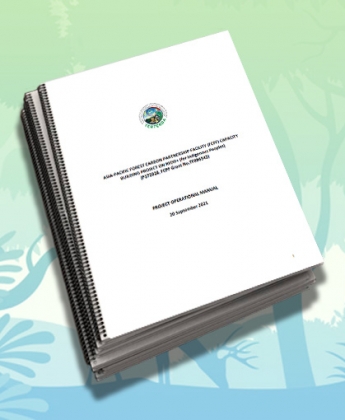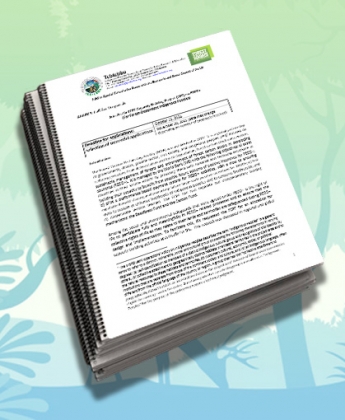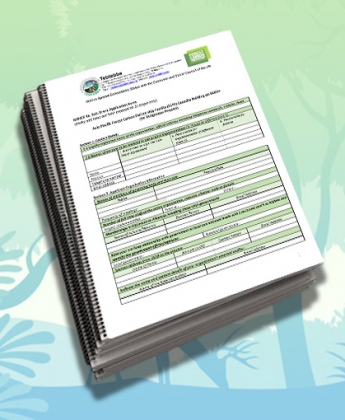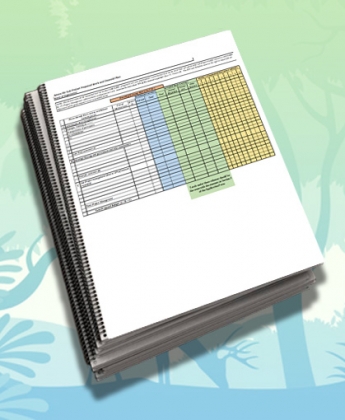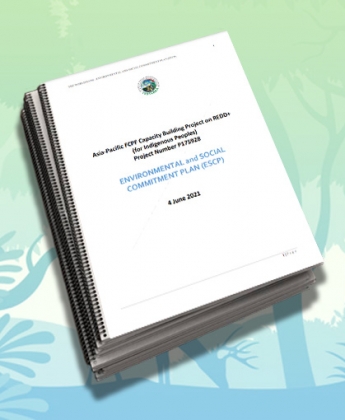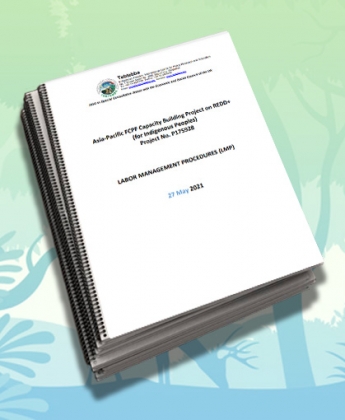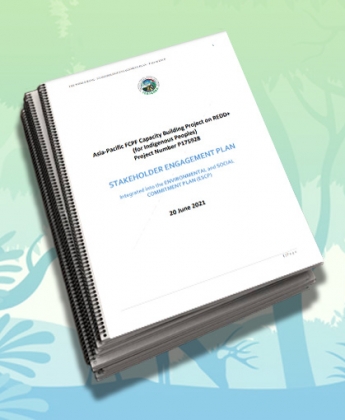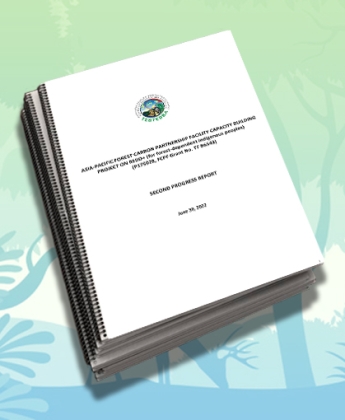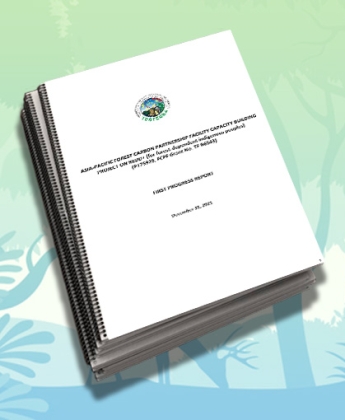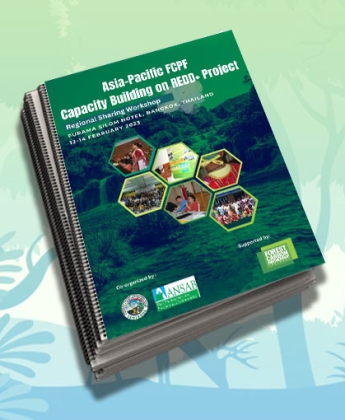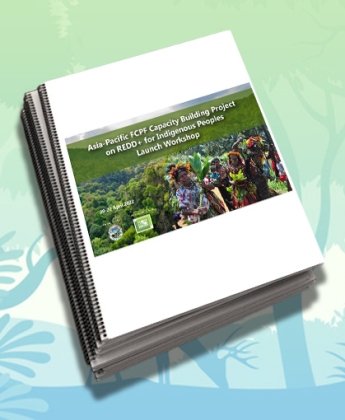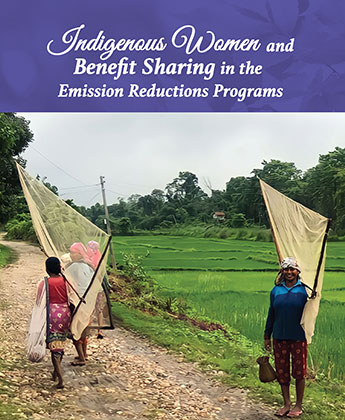Forest Carbon Partnership Facility Capacity Building on REDD+ for Forest-Dependent Indigenous Peoples in East Asia and the Pacific and South Asia Regions Project (P175928)
Phase 3 also known as the Asia-Pacific Forest Carbon Partnership Facility (FCPF) Capacity Building Project on REDD+ for indigenous peoples in will be implemented until December 31, 2022. Its objective is to strengthen the engagement of targeted forest-dependent beneficiaries in REDD+ processes and decision making at the country and regional levels.
Similar to Phase 2, the project shall benefit forest dependent IPs, ethnic minorities and their representative organizations and institutions in the 11 FCPF eligible countries in Asia and the Pacific, namely Kingdom of Bhutan, Kingdom of Cambodia, Republic of Fiji, Republic of Indonesia, Lao People’s Democratic Republic, Nepal, Islamic Republic of Pakistan, Independent State of Papua New Guinea, Kingdom of Thailand, Republic of Vanuatu and the Socialist Republic of Vietnam, who will be eligible to participate in regional learning and exchange activities (activities funded under Component 2). For this phase, only three (3) countries have been identified to be eligible to participate in national-level activities (under Component 1), Fiji, Nepal and Vietnam because their respective governments have signed Emissions Reduction Program Documents (ERPDs).
Complaints Processing and Resolution
Indigenous peoples and other interested stakeholders may provide feedback or raise complaints on the sub-grants’ award decisions, governance of the project, implementation and other issues specific to the project.
Before this grievance mechanism is availed by stakeholders, especially sub-project beneficiaries, indigenous peoples’ resolution systems and practices should be applied first if a party or both to a complaint is or are indigenous peoples. The concerned sub-grantee should compose a grievance panel composed of its representative and IP leaders from the beneficiary community. For cases involving non-IPs, the sub-grantee should use its own mechanism. In either situation, minutes of the resolution process, whether successful or not, should be prepared and signed by the members of the panel and included in the sub-grantee’s monthly report.
To use this grievance mechanism, feedbacks or complaints should generally be sent to the PMT in writing duly signed by the complainant/s and contact details indicated. However, a complaint may also be orally, via phone or in person, in which case the PMT will assist the complainant in documenting the complaint. The minutes of the resolution process that was unsatisfactory to either or both parties at the sub-grantee level should be attached to the complaint. The complaint including annexes should be sent through email (cbp-grievance@tebtebba.org) or courier addressed to Ms. Helen Valdez, PMTL-FCPF CB Project, Tebtebba No. 1 Roman Ayson Rd., Campo Filipino, Baguio City 2600, Philippines.
The PMT will be fully responsible for recording, referring and tracking the complaint. He/she should acknowledge receipt of complaint within 5 working days upon receipt. The PMT will undertake initial discussion with the complainant and propose a response within 15 working days upon receipt of the complaint. If the complainant agrees, the proposed action is implemented. In case the complainant does not agree on the proposed action of the PMT, the PMT will compose a Grievance Committee composed of two (2) representatives of the Management Committee of Tebtebba and two (2) members of the Regional Steering Committee (RSC). Where applicable, one of the members of the RSC to sit in the Grievance Committee shall be from the same country where the feedback/complaint originated.
If the complaint is not resolved at the Grievance Committee level, the complaint is forwarded to the FMT for consultation on the resolution of the grievance. Resolutions or outcomes of complaints received shall be properly documented.
- Project Documents
- Approved Applications
- Project Reports
- Workshops & Meetings
- Publications & Multimedia
- Side Events
The Project Management Team in Tebtebba would like to extend our appreciation to all those who responded to the Call for Proposals for the Asia-Pacific Forest Carbon Partnership Facility (FCPF) Capacity Building Project on REDD+ (for Forest Dependent Indigenous Peoples). Based on the ratings of the technical review undertaken by three (3) members of the Regional Steering Committee (RSC) and an expert, five (5) sub-project proposals were considered.
These 5 applications were further reviewed by Tebtebba and provided comments to improve/strengthen the sub-project proposals. Tebtebba also did due diligence on the proposing organizations based on the eligibility criteria.
As of April 27, 2022 four (5) proposals were approved for funding:
- "Enabling and mobilizing the participation of ethnic minorities (EMs) in the implementation of Vietnam ERP and combating against COVID 19," Centre for Sustainable Development in Mountainous Areas (CSDM), Vietnam
- “Promoting the effective engagement of ethinic minorities (EMs) in the implemenation, mornitoring and evaluation of the Emission Reduction Program (ER-P) through strengthening knowledge and capacity of EMs in REDD+ process,” Centre for Rural Development in Central Vietnam (CRD), Vietnam
- “Supporting Rights and Effective Participation of Indigenous Peoples in Nepal's ERP Implementation,” Nepal Federation of Indigenous Nationalities (NEFIN), Nepal
- “Enhancing Sustainable Forest Management & Biodiversity Preservation for Prosperous Living Culture of Chepang Communities in Nepal by increasing their engagement in REDD+ mechanism and decision making process through capacity building trainings and workshops,” Himalayan Grassroots Women’s Natural Resource Management Association (HIMAWANTI), Nepal
- Enabling indigenous forest dependents to effectively participate in Fiji’s Emission Reductions Program, Soqosoqo Vakamarama I Taukei (SSV), Fiji




